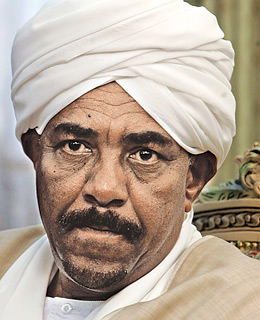
Omar Hassan al-Bashir
A top-100 list gives Omar al-Bashir too much company. In a number of ignominious post-World War II categories, Sudan's dictator ranks in the top five: most deaths as a result of war strategies (2.5 million in Darfur and southern Sudan), most people rendered homeless by scorched-earth policies (7 million), most villages burned to the ground (at least 1,500 in Darfur alone). Bashir's one goal is to maintain power. He has sown discord in Darfur with a classic divide-and-conquer strategy. As a result, interethnic conflict is tearing the region apart, and attacks on aid agencies by government and rebel militias have left a million people beyond the reach of humanitarian aid. Bashir, 63, has blocked the deployment of a larger U.N.-led peacekeeping operation that would protect Darfur's civilians.
And yet something good may come from Bashir's bloody legacy. In universities, synagogues, churches and town halls across the U.S., Americans are writing letters and raising hell about Washington's inaction in response to Darfur. Citizen groups around the world are following suit. In a David-vs.-Goliath scenario, only the activism of ordinary people will galvanize the action necessary to stop Bashir and future war criminals.
Cheadle and Prendergast are authors of Not on Our Watch